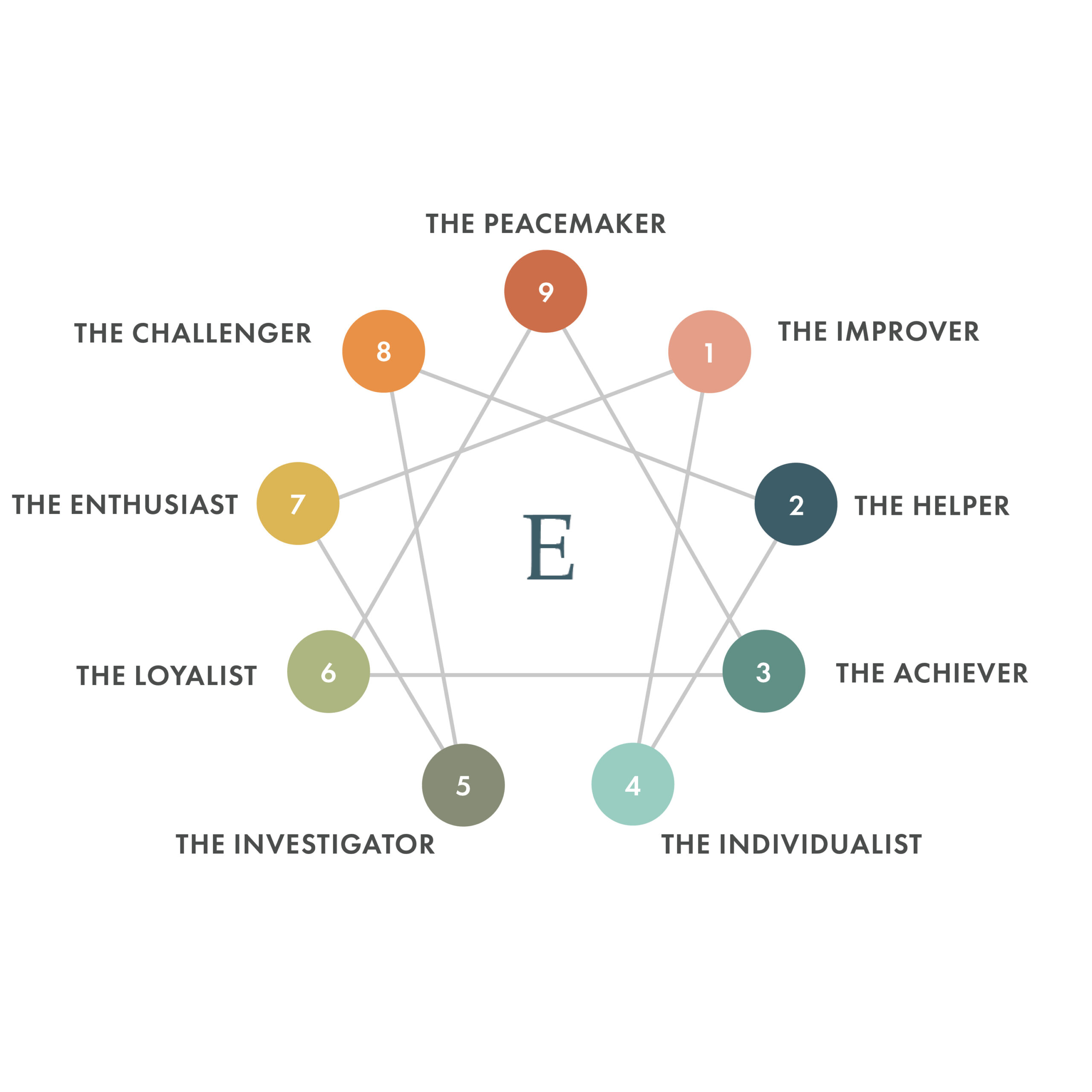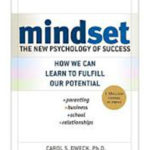If you’re like most of my coaching clients, you might have wished for a magic wand to make life easier. Also like them, you probably discovered that magic wands are pretty hard to come by.
While the Enneagram is certainly not a magic wand, it is a very valuable tool. One that absolutely transformed my life and relationships once I began to understand it. I have seen many of my coaching clients use the wisdom of the enneagram to radically transform their marriages, careers, and inner lives.
What is the Enneagram personality test?
The American Journal of Psychiatry describes the Enneagram as, “A personality theory that characterizes nine distinct strategies by which the human psyche develops a worldview and relates to the self and others.”[1]
Enneagram “types” (or personality profiles) help us understand our strengths, weaknesses and blindspots. This can be a useful tool in helping us improve our emotional intelligence and self-esteem. It can also help manage over-thinking, self doubt, imposter syndrome, perfectionism, frustration, anger, and shame.
Identifying your Enneagram type will give you language to help you better understand your core desires, fears, and beliefs. This language and insight is useful in better relating to yourself and others. It can also help bring a more clear direction to your growth and self-improvement efforts.
How many Enneagram types are there?
“Ennea” refers to the number nine, and “gram” refers to something written or drawn. You will often see the nine Enneagram types drawn in a circular shape with arrows and lines connecting different points. For now, we will take a look at the nine basic Enneagram personality types. They are represented by the numbers 1-9, and each number has a corresponding label or name.
“Each of the nine core “types” described by the Enneagram has an associated basic fear, basic desire, and predictable pattern of behavior in times of stress and security,”[2] according to the American Journal of Psychiatry.
-
-
Type One – “The Perfectionist”
-
- Positive Traits: Reliable, conscientious, and trustworthy. Type ones value quality and hold themselves to a high standard of excellence.
- Opportunities for Growth: Can try to make things perfect by fixating on details. Might become overly critical and inflexible at times.
- Core Desire: To be right and good.
-
-
Type Two – “The Giver”
-
- Positive Traits: Service-oriented, empathetic, and supportive. Type twos value getting to know others and will go out of their way to create positive experiences.
- Opportunities for Growth: Can put others ahead of themselves too often which can lead to resentment. Might have trouble expressing their own needs.
- Core Desire: To be liked and appreciated.
-
-
Type Three – “The Achiever”
-
- Positive Traits: Hard-working, observant, and efficient. Type threes value achieving their goals and can inspire others to do their best.
- Opportunities for Growth: Can become too focused on work or overly competitive. Might struggle to manage failure or “looking bad.”
- Core Desire: To be seen as successful.
-
-
Type Four – “The Individualist”
-
- Positive Traits: Creative, sensitive, and insightful. Type fours value emotional depth and authenticity in their relationships. They can be highly empathetic.
- Opportunities for Growth: Can become overly focused on feelings instead of facts. Might often feel misunderstood and dissatisfied with their life situation.
- Core Desire: To be fully understood and seen as unique.
-
-
Type Five – “The Investigator”
-
- Positive Traits: Calm, inquisitive, and detail-oriented. Type fives value information gathering and can remain objective to find solutions.
- Opportunities for Growth: Can struggle to open up to others on a personal level. They tend to avoid conflict. Might struggle to manage their energy well.
- Core Desire: To be wise and insightful.
-
-
Type Six – “The Skeptic”
-
- Positive Traits: Loyal, practical, and clear communicators. Type sixes do well at anticipating problems and troubleshooting tricky situations.
- Opportunities for Growth: Can be overly cautious and fearful, leading to pessimism. Might have trouble trusting themselves and others.
- Core Desire: To feel safe and secure.
-
-
Type Seven – “The Enthusiast”
-
- Positive Traits: Optimistic, enthusiastic, and imaginative. Type sevens value fun and creativity. They are wonderful at encouraging others to enjoy themselves.
- Opportunities for Growth: Can be impulsive and unwilling to discuss problems thoroughly. Might have trouble sticking to deadlines and structures.
- Core Desire: To feel satisfaction and imagine a pleasurable future.
-
-
Type Eight – “The Challenger”
-
- Positive Traits: Practical, direct, and generous. Type eights will stand up for what they believe is right and take quick action. They step easily into leadership roles.
- Opportunities for Growth: Can be impatient and lack tact. Might struggle to acknowledge their weaknesses or their impact on those around them.
- Core Desire: To be in control and protect themselves.
-
-
Type Nine – “The Peacemaker”
-
- Positive Traits: Approachable, inclusive, and trustworthy. Type nines are able to see all sides of a situation and prefer to find solutions that benefit everyone.
- Opportunities for Growth: Can be conflict-avoidant, allowing others to take advantage of their easy going nature. Might struggle with being clear and concise.
- Core Desire: To maintain inner peace and stability.
Why Enneagram Coaching?
How does all this come together for you in a way that you can learn and grow from?
Ian Cron, Enneagram educator, psychotherapy, and author of the The Road Back to You, describes the benefits of the Enneagram this way:
“The Enneagram provides a framework for how we can begin to live into the highest expression of ourselves. It’s a powerful system for personal growth and a great resource for transforming our relationships in every sphere of life.”[3]
Awareness is the key to knowledge and growth. Knowing your strengths and recognizing your opportunities for growth can make any kind of life coaching or self-improvement practice more focused and powerful. You will be able to recognize your own patterns of behavior and work to change the ones that aren’t serving you.
Understanding the principles of the Enneagram can also improve your relationships with others. Being able to understand someone else’s point of view and engage with them in a way that makes sense to them makes a big difference in the way you are able to navigate conflict.
While the Enneagram is certainly not the only tool that can be used to enhance your growth, it’s one that has long-standing and well-studied benefits. Coaching that utilizes this tool can provide you with valuable, individualized insights that will help you navigate the world in a more intentional and self-aware way.
Click here to read more about enneagram coaching and how it could improve your life. And by the way, if you ever do find that magic wand to make life easier… Don’t forget to share it with me!
1: https://ajp.psychiatryonline.org/doi/full/10.1176/appi.ajp-rj.2020.150301
2: https://ajp.psychiatryonline.org/doi/full/10.1176/appi.ajp-rj.2020.150301






